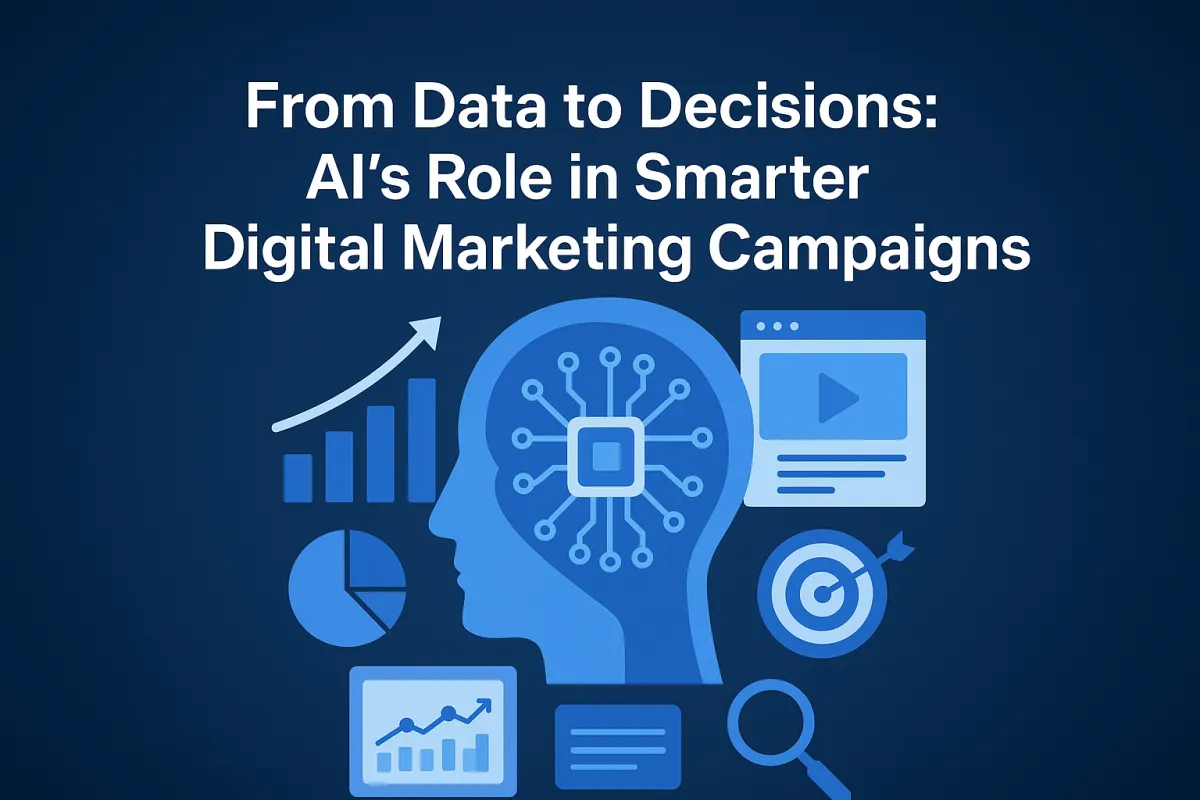
From Data to Decisions: AI’s Role in Smarter Digital Marketing Campaigns
Introduction
Digital marketing has always thrived on data. From customer demographics to click-through rates, every number tells a story. But as businesses face massive amounts of data every second, simply collecting information isn’t enough. The real challenge lies in making sense of it—and that’s where Artificial Intelligence (AI) steps in. AI is transforming the way marketers interpret data, predict customer behavior, and design campaigns that deliver results.
The Shift from Data Overload to Data Intelligence
Marketers today have access to more data than ever before. Social media interactions, website visits, purchase histories, and search patterns all provide valuable insights. However, without the right tools, this flood of information can lead to confusion instead of clarity.
AI solves this problem by:
Processing large datasets in real time
Identifying hidden patterns and trends
Turning raw data into actionable insights
Instead of relying on guesswork, marketers can now make decisions backed by predictive analytics and machine learning models.
Personalization at Scale
One of AI’s biggest advantages in digital marketing is personalization. Consumers expect brands to know their preferences and deliver relevant experiences. AI helps marketers achieve this by:
Recommending products based on browsing and purchase history
Delivering personalized email campaigns
Adjusting ad targeting dynamically to reach the right audience at the right time
For example, Netflix and Amazon use AI-driven recommendation engines that not only boost engagement but also increase customer loyalty.
Smarter Ad Targeting and Budget Optimization
Traditional advertising often meant spending more to reach wider audiences, hoping for conversions. AI has flipped this model. With advanced algorithms, AI tools can:
Optimize ad placements in real time
Predict which audience segments are most likely to convert
Allocate budgets efficiently across multiple channels
This ensures every marketing dollar is spent wisely, maximizing ROI.
Predictive Analytics for Better Campaign Planning
AI doesn’t just analyze what has already happened—it predicts what is likely to happen next. Predictive analytics allows marketers to:
Forecast customer behavior and trends
Identify potential churn risks
Anticipate seasonal demand spikes
With these insights, businesses can proactively adjust their strategies, ensuring they stay ahead of competitors.
Enhancing Customer Engagement with AI Tools
AI-powered chatbots, voice assistants, and conversational AI have redefined customer interaction. They provide:
24/7 support without increasing staffing costs
Instant answers to customer queries
Seamless customer journeys across platforms
These tools not only improve customer experience but also free up human teams to focus on more strategic tasks.
Challenges and Ethical Considerations
While AI brings powerful advantages, it also raises important questions. Data privacy, algorithmic bias, and over-automation are challenges marketers must address. Responsible AI use means:
Maintaining transparency with customers
Protecting user data
Balancing automation with human creativity
Marketers who use AI ethically will build trust and long-term relationships with their audience.
Conclusion
AI is no longer a futuristic concept—it’s a present-day reality that’s shaping the future of digital marketing. By turning overwhelming data into clear decisions, AI empowers marketers to deliver personalized, efficient, and impactful campaigns. Businesses that embrace AI-driven marketing strategies will not only improve ROI but also build stronger connections with their customers in an increasingly competitive digital world.